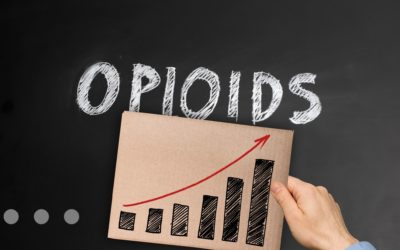Addiction, like any other type of chronic disease, can benefit from the use of pharmaceutical drugs. But while most people wouldn’t blink twice at a prescription for diabetes, cancer, or arthritis, there are a number of persuasive misconceptions about using drugs as a...
Medication Assisted Treatment (MAT)
Medication-assisted treatment (MAT) is an evidence-based approach to treating drug and alcohol addiction. It is a combination of medication and counseling to address both the physical and psychological aspects of addiction. MAT is designed to reduce withdrawal symptoms and cravings, while providing patients with the support and resources they need to achieve lasting recovery.
MAT is a comprehensive approach that includes the prescription of FDA-approved medications to help reduce cravings, block the effects of the addictive substance, and help with withdrawal symptoms. These medications are combined with psychosocial support to provide the patient with the best chance of success in achieving lasting recovery.
The most common medications used in MAT are methadone, buprenorphine, and naltrexone. Each of these medications works differently in the body and each may be best suited for different individuals. Methadone works by blocking the effects of opioids, while buprenorphine is used to reduce cravings and withdrawal symptoms. Naltrexone blocks the effects of opioids and alcohol, and can help reduce cravings.
MAT has been found to be effective in treating both drug and alcohol addiction when combined with behavioral therapy. Studies have shown that MAT can lead to better outcomes than traditional treatment approaches. Studies have also shown that MAT can lead to improved patient retention, better adherence to treatment, and lower rates of relapse.
MAT is not a “quick fix” for addiction, but it is an important part of a comprehensive approach to treating addiction. It can provide a safe, effective, and evidence-based approach to treating addiction and helping people achieve long-term recovery.
Pharmacogenomics in Addiction: Tailoring Treatment for Optimal Recovery
Addiction recovery is a journey that is deeply personal and complex. Standard treatment protocols save many lives, but they often fail others. This happens because every patient is different. Their metabolism, brain chemistry, and response to drugs are unique. Now,...
Impact of the MAT Act on Addiction Treatment: Addressing Challenges and Expanding Access to Opioid Disorder Medications
The Mainstreaming Addiction Treatment Act of 2021, also called the MAT Act, was created to make it easier for healthcare providers to offer addiction treatment for those suffering from an opioid disorder. Before this act, practitioners had to get a special waiver from...
Taking Suboxone During Pregnancy
The opioid crisis has devastated the country but has been particularly disastrous to families and expecting mothers. The number of women who were pregnant while also having an opioid use disorder has quadrupled in the last 15 years. It is also linked to an increased...
5 Myths About Suboxone You Need To Know
If you, or someone you know, is recovering from opioid addiction -- odds are that you’ve heard about suboxone at some point. Suboxone is a powerful prescription drug used in opioid addiction treatment. It can save lives, but there is a lot of misinformation floating...
How to Get Narcan: A Lifesaving Medication
Opioid overdoses, particularly those involving synthetic opioids such as fentanyl, take thousands of lives every year in the U.S. Narcan is a lifesaving medication designed to counteract the effects of opioid overdoses quickly. Having widespread access to Narcan could...
Why Does Suboxone Sometimes Cause Sweating?
If you feel like you’ve started sweating all of the dang time since starting Suboxone therapy, you’re not imagining it (and you’re not alone). Excessive perspiration is a common side effect of this medication. Is it a life-threatening symptom? No. Uncomfortable,...
4 Ways to Increase or Maximize the Effects of Suboxone
The body is an impressive machine, but as amazing as it is, it’s not 100% efficient. Did you know that we sometimes only absorb 10% of the nutrients in the food we eat? The same can be said for other things we put in our bodies, such as vitamins or...
Why Does Suboxone Make You Feel Sleepy?
Feeling tired during the addiction recovery process isn’t unusual, especially during the early stages of getting sober. Prolonged drug abuse causes a lot of wear and tear on the body that requires a lot of energy to function through, and adjusting to the absence of...
Does Suboxone Work for Everyone?
There are plenty of great things to be said about using suboxone to help overcome opioid addiction. It can make detox and withdrawal easier, satisfy cravings, and overall reduce the risk and danger of relapsing--but does suboxone work for everyone? After all, no drug...
Submit your favorite sober brand to be featured in AT Magazine.
We want to know if you love a brand, company, or organization that you feel has helped you in your sobriety! Provide the name and URL for the brand, as well as why you love this brand. Brands can include anything from non-alcoholic beverages and sober merchandise companies to recovery bloggers and influencers.









